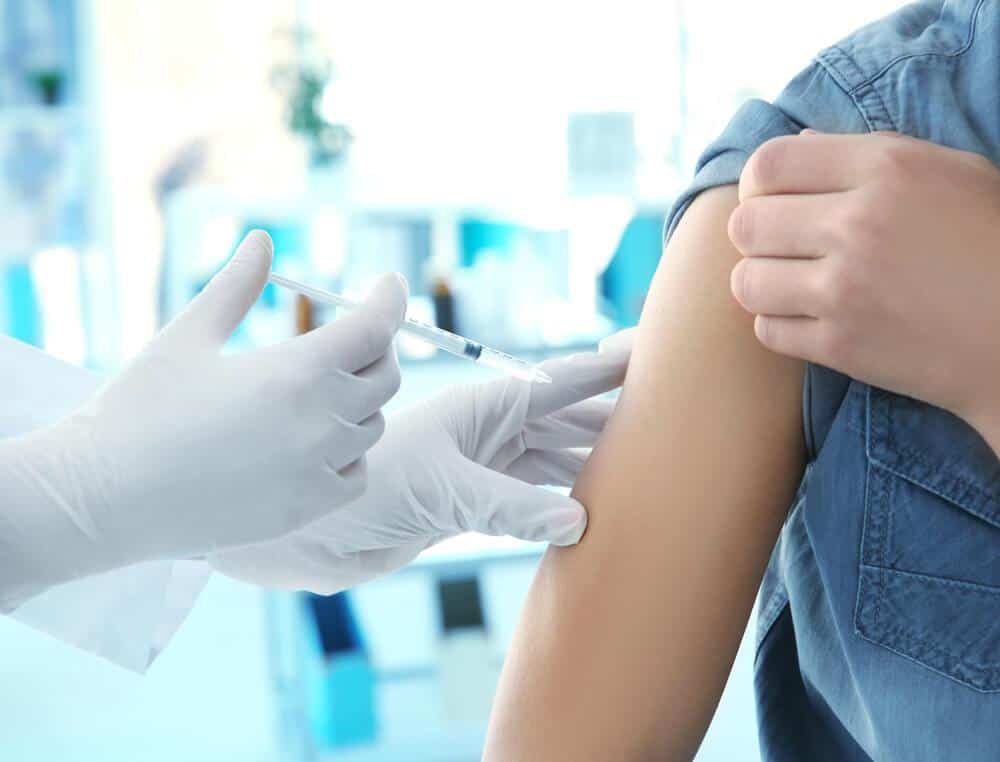Immunisation

Childhood Immunisations and adult immunisations aid in the prevention of serious diseases and communicating them to the wider community, whilst also helping to protect your children’s future health. Our practise nurse is an accredited immunisation nurse and offers comprehensive counselling regarding childhood immunisations, immunisations in adulthood and travel vaccines. Our data is automatically uploaded to the Immunisation Register (ACIR).
What is immunisation?
Adult and childhood immunisation is a safe and effective way of protecting you and your child against serious diseases.
Immunisation protects you from harmful diseases before you come into contact with them. It uses your body’s natural defence to build resistance to specific diseases. If you come into contact with that disease in the future, your immune system remembers it, and responds quickly to prevent the disease from developing.
After immunisation, you are far less likely to catch the disease you have been immunised against. This is why childhood immunisations are highly recommended. If you do catch the disease, your illness will be less severe. Your recovery will be quicker than an unimmunised person’s recovery.
Childhood immunisation plays a huge role in protecting a child’s health and building immunity at an early age.
Immunisation or vaccination – what’s the difference?
Vaccination involves receiving a vaccine from a needle or drops in the mouth. This is done by your healthcare professional.
Immunisation is the process of both receiving a vaccine and becoming immune to the disease as a result.
What is the National Immunisation Program?
The Australian Government funds the National Immunisation Program (NIP), which provides free vaccines against 17 diseases.
By funding free vaccines, the NIP aims to increase national immunisation rates. The Australian Immunisation Register (AIR) helps record vaccines given to people in Australia. Vaccination providers can provide details of people’s vaccinations to the Register. This helps monitor individual and population coverage against diseases.
How does immunisation work?
Vaccines stimulate the body’s natural defence to strengthen your natural immune system. They are a safe and clever way of producing an immune response in the body without causing illness. Doctors recommend childhood immunisations for infants to help build a strong immune system at an early age.
Vaccines use dead or severely weakened viruses to trick our bodies into thinking we have already had the disease.
When you get a vaccine, your immune system responds to these weakened ‘invaders’ and creates antibodies to protect you against future infection. It has special ‘memory’ cells that remember and recognise specific germs or viruses.
Vaccines strengthen your immune system by training it to recognise and fight against specific germs.
When you come across that virus in the future, your immune system rapidly produces antibodies to destroy it. In some cases, you may still get a less serious form of the illness, but you are protected from the most dangerous effects.
If a disease infects you, then you may become immune to it in the future. We call this ‘natural’ immunity.
Some people believe that natural immunity is better than the immunity from vaccines. But the risks associated with natural immunity are much higher than the risks associated with immunity provided by vaccines. Some highly contagious diseases can lead to severe complications. They can make you very ill or even kill you.
The benefits of vaccination far outweigh the risks. Vaccination protects you and your family from diseases, including ones that are deadly. It also protects other people in your community, including people who are vulnerable, too young, or too sick to be immunised.
The estimation is that immunisation programs prevent about 2.5 million deaths every year. Vaccination also helps protect the health of future generations, for example against the crippling disease polio.
Why get immunised?
Adult and childhood immunisation is a safe and effective way to protect you and your children from harmful, contagious diseases. It also safeguards the health of other people, now and for future generations.
Before vaccination campaigns in the 1960s and 1970s, diseases like tetanus, diphtheria, and whooping cough killed thousands of children. Today, it is extremely rare to die from these diseases in Australia.
All diseases we vaccinate against can cause serious ongoing health conditions, and sometimes death. Adult and childhood immunisation is a safe and effective way of protecting you and your child against these diseases.
Adult and Childhood Immunisation protects more than you and your child from serious diseases. When you get immunised, you protect yourself as well as helping to protect the whole community. When enough people in the community get immunised, it is more difficult for these diseases to spread. This helps to protect people who are at more risk of getting the disease, including unvaccinated members of the community. This means that even those who are too young or too sick to be vaccinated will not encounter the disease. We call this ‘herd immunity’ and it can save lives.
If enough people in the community get immunised against a disease, the infection can no longer spread from person to person. The disease can die out altogether. For example, smallpox was eradicated in 1980 after a vaccination campaign led by the World Health Organisation.
Why is childhood immunisation so important?
Childhood immunisations are highly recommended by doctors to make sure that children can fight infections and diseases at a young age without taking serious damage. Childhood immunisations make it possible for babies who are vulnerable to infections, fight them through antibodies prepared through the process of childhood immunisation! Childhood immunisations should not be neglected as they play a big role in a child’s well being. Your doctor will give you a list of childhood immunisations that hold importance and must be fulfilled as soon as possible.
Make sure that you finish the entire childhood immunisation programme and don’t leave it hanging.
When do I get immunised?
Your health, age, lifestyle and job will determine the vaccines you need and when to get them. Your doctor can advise you on which vaccinations you may need.
People need protection from different diseases at different ages.
Lifestyle choices can have an impact on your immunisation needs. You may benefit from immunisations if you are travelling overseas, planning a family, sexually active, a smoker or play sport that may expose you to someone’s blood. Childhood immunisation will benefit your child if they come in contact with any infections or diseases.
Some jobs may expose you to a greater risk of contact with vaccine-preventable diseases or put you in contact with people who are more susceptible to vaccine-preventable diseases. This includes people working in aged care, childcare, healthcare or emergency service.
Immunisations also help with chronic disease management. In case you have not received immunisation for a particular sickness, immunisations can help you stop these occurrences.
Is there a cost for immunisation?
Free essential vaccines are offered through the National Immunisation Program (NIP) for eligible infants, children, adolescents and adults.
In addition to the vaccines provided free through the NIP, some states and territories offer additional free vaccination programs. Please refer to state and territory adult and child immunisation schedules for information about what adult and child immunisation programs they provide.
You may need other vaccines not provided through the NIP or state and territory immunisation programs. You can purchase additional vaccines privately when you need to. Talk to your doctor if you think you or someone in your care may need additional vaccines.
If you’re looking for childhood immunisations and iron infusions near me, just reach out to us and book an appointment!
[/cmsmasters_text][/cmsmasters_column][/cmsmasters_row]
